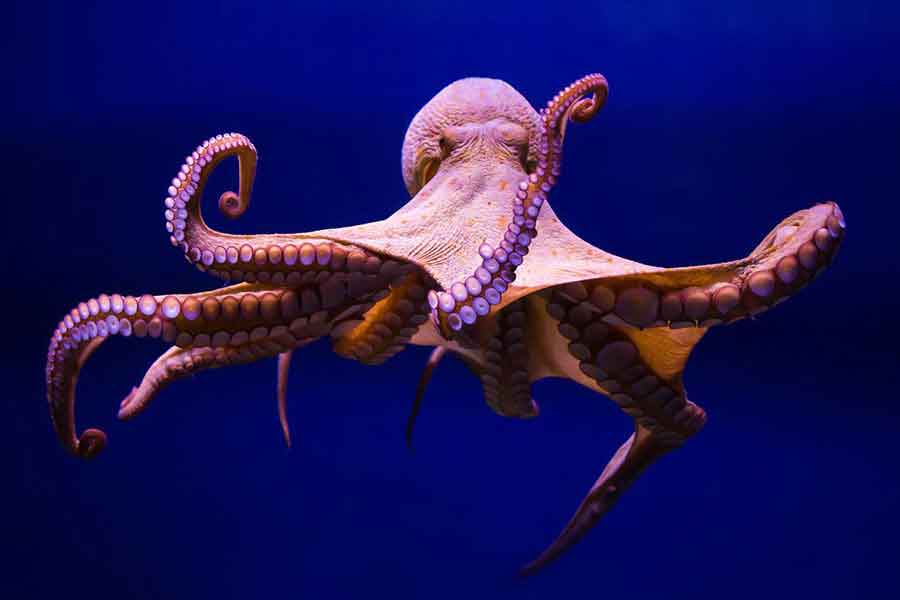
Few animals have such a bad reputation as the octopus. Ancient artists and writers often depicted octopuses as gigantic bloodthirsty monsters with enough strength to crush ships. Dubbed «devilfish» by our ancestors, they were perceived as terrifying, fierce, and ravenous creatures. The classification of Cephalopoda (head-footed) further fueled the human imagination.
Victor Hugo wrote, «The horrible tentacles are hard as steel, cold as the night. The octopus lures you in. Unable to move, man is absorbed into the horrible bag that is the monster itself, death arrives in a terrible form.» In his only dive aboard a bell-shaped diving bell built by Aristotle, Alexander the Great described them as «serpents with eight heads.»
But the truth is that Victor Hugo never encountered an octopus. The reality is that octopuses do not possess the proportions or temperament of a monster. In reality, they are shy and elusive creatures. It is difficult for a human being to imagine an animal completely devoid of bones, so flexible that it can pass through the mouth of a bottle to seek refuge inside. Octopuses are truly astonishing animals.
Masters of camouflage, they can instantaneously change their color, blending with the background they rest upon, rendering themselves invisible or even adopting a fierce appearance to scare away potential attackers. However, if this method fails, they can escape at high speed, using their respiratory systems as powerful propellers while releasing clouds of ink to confuse their predators. Found in all the world’s oceans, they are represented by 150 different species, ranging in size from a couple of centimeters for the smallest species to seven meters for the largest.
Swift, curious, exhibiting a certain form of intelligence, equipped with three hearts, possessing highly developed underwater vision, and fond of crabs and lobsters, they are enemies of moray eels and masters of deception. Octopuses have roamed the ocean floor long before humans began trying to understand them. Two attentive eyes peer upon the presence of a diver; they know what it means, they have always known.
«You cannot defend what you do not love, and you cannot love what you do not know.»

